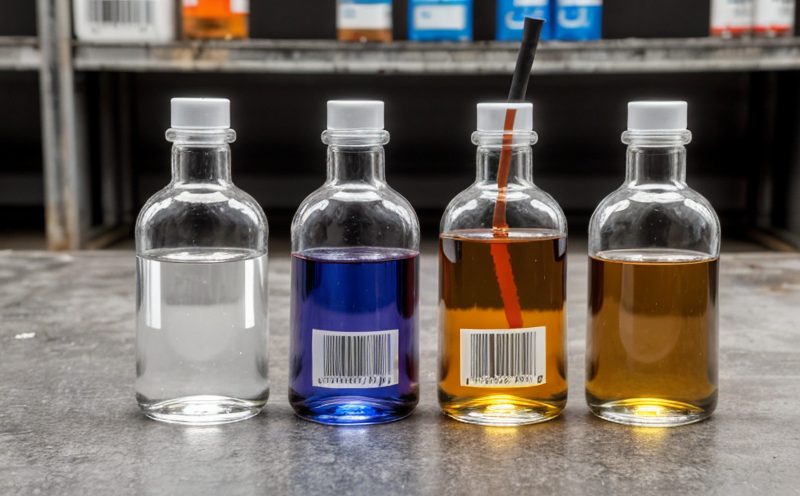ISO 10993 Biodegradation and Stability Testing of Medical Devices
The ISO 10993 series of standards is a cornerstone in medical device regulation, emphasizing safety and performance. Within this framework, biodegradation and stability testing of medical devices are critical to ensuring the long-term reliability and patient safety of these products. This test specifically evaluates how a medical device will degrade over time under specified conditions, which is essential for devices intended for extended use or those that come into contact with bodily fluids.
The process involves subjecting the medical device to environmental factors such as temperature, humidity, and light exposure to simulate real-world conditions. The goal is to assess whether the device maintains its integrity and functionality over time, without compromising safety. This testing is particularly important for devices like prostheses, implants, and other components that are expected to remain in the body for extended periods.
For biodegradable materials, this test also evaluates how quickly or slowly these materials degrade under controlled conditions. The rate of degradation can significantly impact the device's performance and safety. Therefore, understanding the degradation process is crucial for ensuring that the device remains stable until it reaches the end-user, whether it be a patient or healthcare provider.
The testing procedure follows strict ISO 10993 guidelines, which are internationally recognized standards. These standards provide detailed protocols on how to conduct these tests, including specimen preparation, incubation conditions, and evaluation methods. Compliance with these standards ensures that the results of the biodegradation and stability testing are reliable and can be trusted by regulatory bodies.
The data generated from this testing is vital for several reasons. First, it helps in identifying any potential issues early on, allowing manufacturers to make necessary adjustments before releasing products into the market. Second, it provides a baseline for post-market surveillance, enabling continuous monitoring of device performance and safety over time. Finally, these tests are essential for ensuring compliance with regulatory requirements, which is critical for maintaining a strong reputation and avoiding costly legal and operational issues.
Understanding the biodegradation process of medical devices also has broader implications beyond just product development. For instance, it can influence the choice of materials used in device manufacturing. The results of this test can guide engineers and scientists towards selecting more durable or less harmful materials, thereby improving overall patient safety and satisfaction.
In summary, ISO 10993 biodegradation and stability testing is a vital step in ensuring that medical devices meet the highest standards of quality and safety. It provides critical insights into how these devices will perform under real-world conditions, allowing for proactive identification and resolution of potential issues. This knowledge not only enhances product reliability but also contributes to maintaining regulatory compliance and fostering trust among healthcare providers and patients.
Why It Matters
The importance of biodegradation and stability testing cannot be overstated, especially in the context of medical devices. These tests are essential for ensuring that devices remain stable and functional over their intended use period, which is critical for patient safety and satisfaction.
- Ensures Longevity: By simulating real-world conditions, these tests help ensure that the device remains reliable throughout its lifecycle, minimizing the risk of premature failure.
- Promotes Safety: The testing process helps identify any potential risks associated with material degradation or performance issues, allowing for timely interventions and corrections.
- Facilitates Regulatory Compliance: Adhering to ISO 10993 standards ensures that the results are accepted by regulatory bodies worldwide, streamlining market entry processes.
- Enhances Reputation: Consistent quality and reliability can significantly enhance a company's reputation in the medical device industry, attracting more customers and partnerships.
- Promotes Innovation: Understanding how devices degrade or stabilize under various conditions can inspire new design ideas and materials that improve performance and safety.
The results of these tests are not just technical; they have a direct impact on patient care. By ensuring the stability and safety of medical devices, healthcare providers can trust in the products they use, leading to better treatment outcomes and improved patient satisfaction.
Why Choose This Test
1. Compliance with International Standards: Adhering to ISO 10993 ensures that your tests meet the highest international standards, providing confidence in regulatory compliance.
2. Expertise and Experience: Our team of highly skilled professionals brings extensive experience in medical device testing, ensuring accurate and reliable results.
3. Cutting-Edge Equipment: We utilize state-of-the-art equipment to conduct these tests, providing precise and repeatable results.
4. Comprehensive Reporting: Our detailed reports provide a comprehensive overview of the test results, including recommendations for improvement where necessary.
5. Timely Deliveries: We understand the importance of timely delivery in medical device development, ensuring that you receive your reports promptly to meet project deadlines.
6. Customized Solutions: Our tests are tailored to meet the specific needs of your product and regulatory requirements, providing a personalized service experience.





